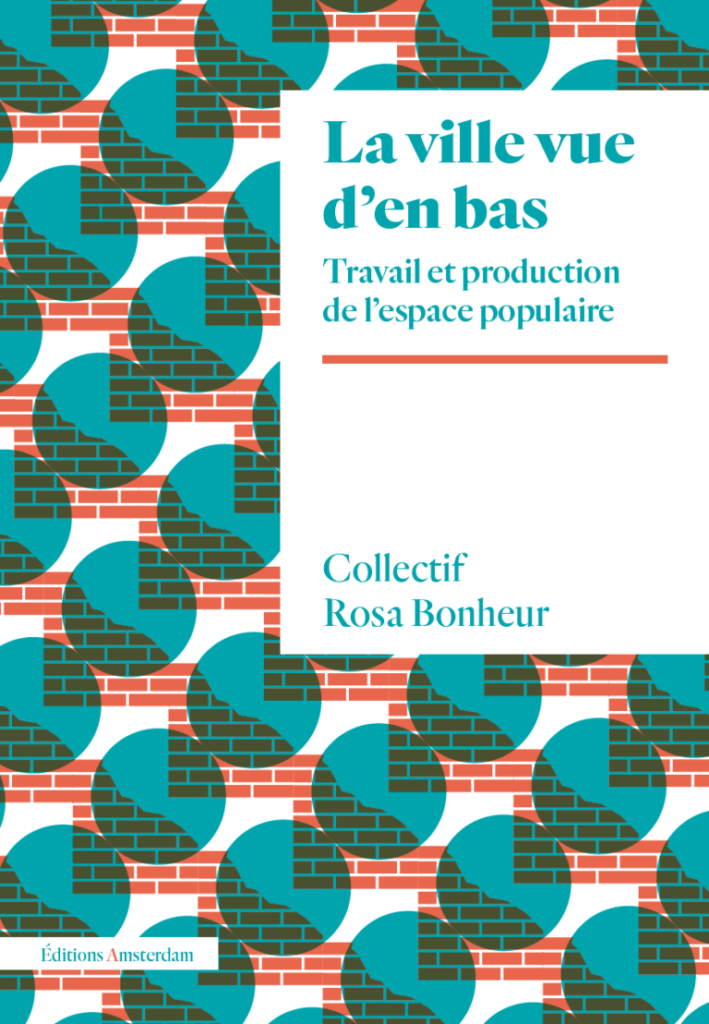Collectif Rosa Bonheur, La Ville vue d’en bas. Travail et production de l’espace populaire, Éditions Amsterdam, Paris, 2019

This collective text examines informal work in Roubaix, a deindustrialized city in northern France between 2011 and 2015. The inhabitants are now over 60% of immigrant origin, notably from North Africa, and thus on the fringes France’s peculiar, highly structured and non-inclusive wage economy. The excluded, such as newcomers to the country without contacts amongst employers or training qualifications for a specific job, such as a shop clerk, undertake what is referred to as “subsistence work” (Maria Mies) but more widely understood as informal labour. The informal economy of Roubaix involves exchanging services that are either bartered of sold at low prices. The local space of the neighbourhood and region is both a lived space and a tool for work and economic exchange. Surviving on a daily basis with an intensely local network, with a classic sexual division of labor, men organize street garages and renovate homes while women create food purchasing networks, become hairdressers, seamstresses or pastry chefs at home. Informal work gives dignity and pride – the Collective found that we are far from the stereotypes about the marginalized and unemployed.
However, a classic strategy of renting a garden-sized plot of land to grow vegetables to sell for cash at the local weekend food market, is hardly an inspiration to racialized teens. They witness their established peers screened in to higher education and career opportunities through tough, culturally biased national examination systems, structural discrimination and overt racism in a highly polarized atmosphere of high levels of migration across the Mediterranean.
However, the municipality chose to support forms of gentrification through urban renewal policies, demolishing housing and closing the unsightly flea market, repressing the informal economy. For example, municipal decree in 2018 banned any automobile repair activity in the street. One hopes for a new political generation, but fundamentalist religious activism and Gang economies — politics by another means — might also be an alternative to the intimate scale of informal neighbourhood exchange.
-Rob Shields (Univ. of Alberta)
